A History of Russia
Now extensively revised in this ninth edition, A History of Russia covers the entire span of the country's history, from ancient times to the post-communist present. Keeping with the hallmark of the text, Riasanovsky and Steinberg examine all aspects of Russia's history--political, international, military, economic, social, and cultural--with a commitment to objectivity, fairness, and balance, and to reflecting recent research and new trends in scholarly interpretation. In the ninth edition, this includes expanded attention to the experiences of ordinary men and women and to imperial expansion and diversity. Extensively revised and with a more streamlined organization, A History of Russia, Ninth Edition, includes recent developments in Ukraine and Russia's near abroad in the Putin era.

Black Aesthetics and the Interior Life
Christopher Freeburg’s Black Aesthetics and the Interior Life offers a crucial new reading of a neglected aspect of African American literature and art across the long twentieth century. Rejecting the idea that the most dehumanizing of black experiences, such as lynching or other racial violence, have completely robbed victims of their personhood, Freeburg rethinks what it means to be a person in the works of black artists. This book advances the idea that individual persons always retain the ability to withhold, express, or change their ideas, and this concept has profound implications for long-held assumptions about the relationship between black interior life and black collective political interests.
Examining an array of seminal black texts—from Ida B. Wells’s antilynching pamphlets to works by Richard Wright, Nina Simone, and Toni Morrison—Freeburg demonstrates that the personhood represented by these writers unsettles rather than automatically strengthens black subjects’ relationships to political movements such as racial uplift, civil rights, and black nationalism. He shows how black artists illuminate the challenges of racial collectivity while stressing the vital stakes of individual personhood. In his challenge to current African Americanist criticism, Freeburg makes a striking contribution to our understanding of African American literature and culture.
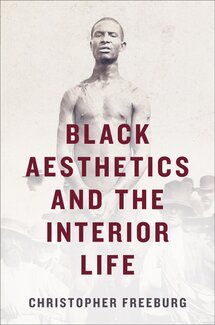
The Oxford Handbook of Arab Novelistic Traditions
The Oxford Handbook of Arab Novelistic Traditions is the most comprehensive treatment of the subject to date. In scope, the book encompasses the genesis of the Arabic novel in the second half of the nineteenth century and its development to the present in every Arabic-speaking country and in Arab immigrant destinations on six continents. Editor Waïl S. Hassan and his contributors describe a novelistic phenomenon which has pre-modern roots, stretching centuries back within the Arabic cultural tradition, and branching outward geographically and linguistically to every Arab country and to Arab writing in many languages around the world.
The first of three innovative dimensions of this Handbook consists of examining the ways in which the Arabic novel emerged out of a syncretic merger between Arabic and European forms and techniques, rather than being a simple importation of the latter and rejection of the former, as early critics of the Arabic novel claimed. The second involves mapping the novel geographically as it took root in every Arab country, developing into often distinct though overlapping and interconnected local traditions. Finally, the Handbook concerns the multilingual character of the novel in the Arab world and by Arab immigrants and their descendants around the world, both in Arabic and in at least a dozen other languages. The Oxford Handbook of Arab Novelistic Traditions reflects the current status of research in the broad field of Arab novelistic traditions and signals toward new directions of inquiry.
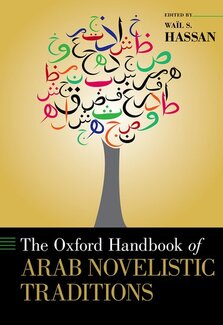
The Global 1960s: Convention, Contest and Counterculture
The Global 1960s presents compelling narratives from around the world in order to de-center the roles played by the United States and Europe in both scholarship on, and popular memories of, the sixties.Geographically and chronologically broad, this volume scrutinizes the concept of "the sixties" as defined in both Western and non-Western contexts. It provides scope for a set of analyses that together span the late 1950s to the early 1970s. Written by a diverse and international group of contributors, chapters address topics ranging from the socialist scramble for Africa, to the Naxalite movement in West Bengal, the Troubles in Northern Ireland, global media coverage of Israel, Cold War politics in Hong Kong cinema, sexual revolution in France, and cultural imperialism in Latin America.The Global 1960s explores the contest between convention and counter-culture that shaped this iconic decade, emphasizing that while the sixties are well-known for liberation, activism, and protest against the establishment, traditional hierarchies and social norms remained remarkably entrenched. Multi-faceted and transnational in approach, this book is valuable reading for all students and scholars of twentieth-century global history.
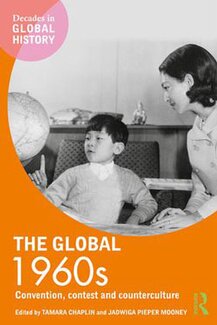
The Norton Anthology of Western Philosophy: After Kant, Volume I: The Interpretive Tradition
The Norton Anthology of Western Philosophy: After Kant provides a comprehensive introduction to the predominantly European (“Continental”) interpretive tradition of philosophy after Kant in one volume, and to the now predominantly Anglo-American analytic tradition in the other. It features the extensive editorial apparatus for which Norton Anthologies have been known and trusted by professors and students alike for more than 50 years. Ideal for courses at all levels in the history of philosophy after Kant, these volumes belong on every philosopher’s (and philosophy student’s) bookshelf.
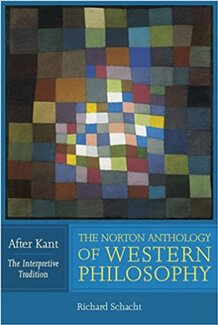
The Russian Revolution, 1905-1921
The Russian Revolution, 1905-1921 is a new history of Russia's revolutionary era as a story of experience-of people making sense of history as it unfolded in their own lives and as they took part in making history themselves. The major events, trends, and explanations, reaching from Bloody Sunday in 1905 to the final shots of the civil war in 1921, are viewed through the doubled perspective of the professional historian looking backward and the contemporary journalist reporting and interpreting history as it happened. The volume then turns toward particular places and people: city streets, peasant villages, the margins of empire (Central Asia, Ukraine, the Jewish Pale), women and men, workers and intellectuals, artists and activists, utopian visionaries, and discontents of all kinds. We spend time with the famous (Vladimir Lenin, Lev Trotsky, Alexandra Kollontai, Vladimir Mayakovsky, Isaac Babel) and with those whose names we don't even know. Key themes include difference and inequality (social, economic, gendered, ethnic), power and resistance, violence, and ideas about justice and freedom. Written especially for students and general readers, this history relies extensively on contemporary texts and voices in order to bring the past and its meanings to life. This is a history about dramatic and uncertain times and especially about the interpretations, values, emotions, desires, and disappointments that made history matter to those who lived it
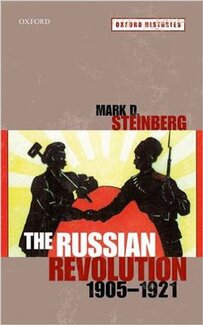
Poems Against the Empire
Poetry stands against any empire! The pen is always mightier than the sword! The author has spent the past five decades learning, lecturing, writing, and lawyering against the American Empire as well as against foreign empires. Set forth in this book are his poetic reflections on these experiences fighting for peace, justice, human rights and international law. The author’s hope is that these poems might inspire the reader to do the same. You can do it too!
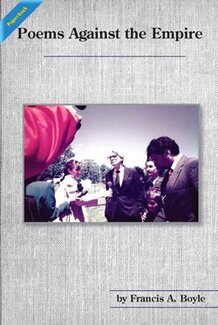
NOVEL: "Worlding Realisms" (2016)
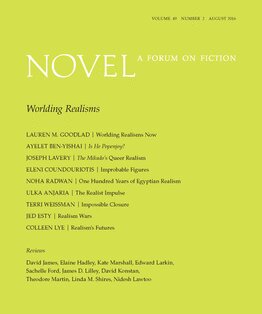
Descended from Hercules: Biopolitics and the Muscled Male Body on Screen
Muscles, six-pack abs, skin, and sweat fill the screen in the tawdry and tantalizing peplum films associated with epic Italian cinema of the 1950s and 1960s. Using techniques like slow motion and stopped time, these films instill the hero’s vitality with timeless admiration and immerse the hero’s body in a world that is lavishly eroticized but without sexual desire. These “sword and sandal” films represent a century-long cinematic biopolitical intervention that offers the spectator an imagined form of the male body—one free of illness, degeneracy, and the burdens of poverty—that defends goodness with brute strength and perseverance, and serves as a model of ideal citizenry. Robert A. Rushing traces these epic heroes from Maciste in Cabiria in the early silent era to contemporary transnational figures like Arnold Schwarzenegger in Conan the Barbarian, and to films such as Zach Snyder’s 300. Rushing explores how the very tactile modes of representation cement the genre’s ideological grip on the viewer.
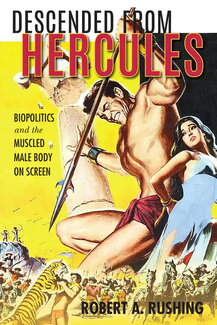
Displaying Death and Animating Life: Human-Animal Relations in Art, Science, and Everyday Life
The number of ways in which humans interact with animals is almost incalculable. From beloved household pets to the steak on our dinner tables, the fur in our closets to the Babar books on our shelves, taxidermy exhibits to local zoos, humans have complex, deep, and dependent relationships with the animals in our ecosystems. In Displaying Death and Animating Life, Jane C. Desmond puts those human-animal relationships under a multidisciplinary lens, focusing on the less obvious, and revealing the individualities and subjectivities of the real animals in our everyday lives.
Desmond, a pioneer in the field of animal studies, builds the book on a number of case studies. She conducts research on-site at major museums, taxidermy conventions, pet cemeteries, and even at a professional conference for writers of obituaries. She goes behind the scenes at zoos, wildlife clinics, and meetings of pet cemetery professionals. We journey with her as she meets Kanzi, the bonobo artist, and a host of other animal-artists—all of whom are preparing their artwork for auction. Throughout, Desmond moves from a consideration of the visual display of unindividuated animals, to mourning for known animals, and finally to the marketing of artwork by individual animals. The first book in the new Animal Lives series, Displaying Death and Animating Life is a landmark study, bridging disciplines and reaching across divisions from the humanities and social sciences to chart new territories of investigation.

100 English Building
608 South Wright Street
Urbana, Illinois 61801